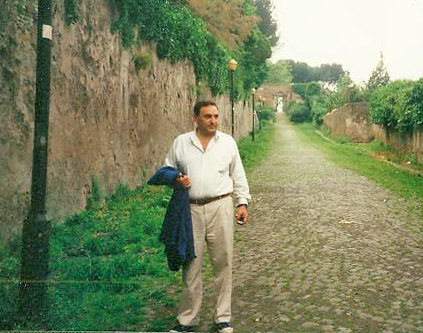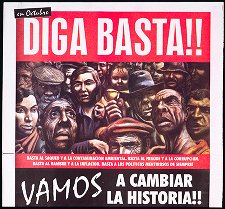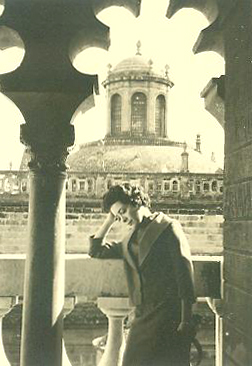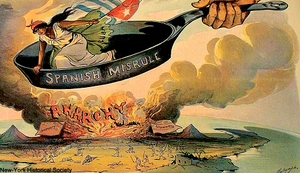Category Archives: Uncategorized
University of São Paulo, Princeton to launch strategic partnership this fall
Next fall, five years after President Shirley Tilghman published the fall 2007 report “Princeton in the World,” which delineated measures for expanding the University’s international presence, the University will announce a formal academic partnership with the University of Sao Paulo in Brazil, according to history professor and Council for International Teaching and Research Director Jeremy Adelman.
Between 2012 and 2015, Princeton and USP faculty will study “Race and Citizenship in the Americas,” supplemented by a series of major yearly conferences and smaller workshops with faculty and students at the schools, according to the project proposal announced Thursday. The project will facilitate the hosting of graduate schools at the two universities, with the ultimate goal of “strengthen[ing] and broaden[ing] Princeton’s academic and institutional ties with Brazil.”
Princeton University features a “Spotlight on PLAS”
From poetry to politics and everything in between, the Program in Latin American Studies (PLAS) brings together scholars, artists, students and experts to explore the many facets of Latin America.
Since its inception in 1967, PLAS has focused on the culture, history, socioeconomic conditions, politics, and society of the region. With a vibrant cadre of associated faculty and visiting scholars, PLAS offers an intellectual and creative hub for research, teaching and cultural exchange.
Sarah Hirschman, founder of People & Stories/Gente y Cuentos, passes away
Dear friends of PLAS:
I write to share some very sad news. Sarah Hirschman passed away earlier this week. There will be a memorial service this Saturday, 1/21, at 3:30pm at the Institute for Advanced Studies Dining Hall. You can read an article from Town Topics on Sarah listing her many contributions to the Princeton community; an introduction to one of her talks by Arcadio Díaz-Quiñones; and her obituary.
Best,
Rubén
Director, Program in Latin American Studies
Juan José Saer manuscripts, 1958-2004 at Princeton University Library

The Manuscripts Division has recently added the manuscripts of Argentinean writer Juan José Saer to its premier collection of archives, manuscripts, and correspondence by Latin American writers and intellectuals. The collection contains numerous notebooks, notes, and drafts of Saer’s novels, essays, short stories, poems, and interviews. Several items in the collection are unpublished. Also included are background materials for Saer’s posthumous novel, La Grande, and some photographs. A detailed finding aid is already available.
Juan José Saer, the son of Syrian immigrants to Argentina, was born in Serodino, a town in the province of Santa Fé, on June 28, 1937. He studied law and philosophy at the Universidad Nacional del Litoral in Santa Fé, and taught film history and criticism at the same institution. He moved to Paris in 1968, where he taught literature at the University of Rennes, and lived in that city until his death in 2005. Although Saer spent most of his literary life outside Argentina, much of his fiction was set on the area of northern Argentina known as el Litoral. Among his literary works are the novels Cicatrices (1968), El limonero real (1974), Nadie, nada, nunca (1980), El entenado (1983), La ocasión (1988), La pesquisa (1994), and the book of poems El arte de narrar (1977). Saer is considered by some critics to be the most important Argentinean writer of the post-Borges generation.
Photo caption: Photograph of Juan José Saer [Juan José Saer manuscripts, Box 13, Folder 9].
Digital Latin American posters collection grows

The posters included in this new digital project were created by a wide variety of social activists, non-governmental organizations, government agencies, political parties, and other types of organizations across Latin America, in order to publicize their views, positions, agendas, policies, events, and services. Even though posters produced in Argentina, Bolivia, Chile, Ecuador, Mexico, and Venezuela are the most abundant among the more than two thousand currently available in the site, almost every country in the region is represented. In terms of topics, some of the best represented are human rights, elections, gender issues, indigenous issues, labor, ecology and environmental issues, development, public health, and education.
The Latin American Posters Collection is a component of the larger collection of Latin American ephemera that Princeton University Library has developed since the 1970s.
View the Latin American Posters Collection at Princeton University Library
Image caption: Diga basta! Vamos a cambiar la historia! Movimiento Asambleas del Pueblo. Partido de las Asambleas, Argentina
Congratulations to Noam Lupu, who received the Porter Ogden Jacobus Fellowship
Noam Lupu (Politics) is one of four doctoral students who received the Porter Ogden Jacobus Fellowship. Lupu, who frequently visits relatives in Argentina and Chile, became interested in the breakdown of Latin American political parties when he witnessed the breakdown of the Argentine radical party in the early 2000s.
Alumni News: An update from Luis Orcí Gandara *68
Yo inicié mi trabajo en la CNDH como “Titular del Órgano Interno de Control”, o sea el Chief Auditor and Comptroller de la CNDH, donde estuve en esa posición aproximadamente 9 años, con un staff de 40 personas para dar seguimiento a las actividades de la CNDH, tanto en su oficinas centrales en la Cd. De México como las de las oficinas foráneas que tenemos en todas las ciudades de los estados fronterizos de México, tanto en el Norte como en el Sur, así como en las ciudades situadas en las rutas de los migrantes Centroamericanos en camino a los EE UU., que necesitan mucho apoyo por los abusos a los que están expuestos por el crimen organizado, algunos pobladores mexicanos abusivos y hasta por autoridades municipales corruptas.
Princeton University Library acquires the papers of Claribel Alegría
The personal and literary papers of the Nicaraguan-born Salvadoran writer Claribel Alegría were recently added to the Manuscripts Division‘s extensive collection of archives, correspondence, and manuscripts by 20th century Latin American and Caribbean authors and intellectuals.
”]
O museu que mora ao lado
Pedro Meira Monteiro’s article in Folha de S.Paulo is a brief reflection on the role museums play in our daily lives, based on the Museo del Barrio’s exhibition “Nueva York (1613-1945)”. It was published on Jan 4, 2011 (Folha de S.Paulo, Ilustrada, p.E4).

![Alejandro Rossi at his desk [Alejandro Rossi Papers, 1812-2010, Box 31, Folder 6]](http://blogs.princeton.edu/plas/wp-content/uploads/sites/52/2012/09/agh1.jpg)
